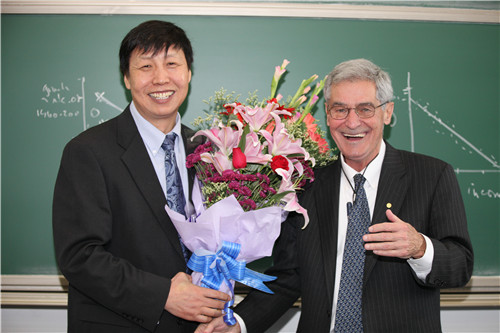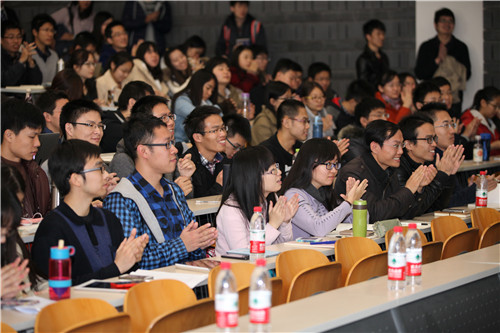

On 8 November, 2014, Professor Robert Lucas gave a lecture on "Global Economic Growth, Poverty and Inequality " for Peking University National school of Development (''NSD'') students. This lecture was part of the ''Peking University HSBC Finance Lecture'' series hosted by the HSBC. Financial Research Institute at Peking University.
Professor Lucas, Professor of Economics at Chicago University, won the Nobel Prize in Economics in 1995 and is highly regarded in the field of Economics. Professor Hai Wen, vice president at Peking University opened with the welcome speech. NSD Professor Lin Shuanglin hosted the lecture and praised Prof. Lucas on his promoting the rise of Neo-Classical Economics focused on micro economic foundations, whose forecasting trends have shifted the macroeconomic analysis paradigm and deepened peoples' understanding of economic policy.

Professor Hai Wen, Vice President of Peking University, Dean of Peking University HSBC business school & NSD professor

NSD professor Lin Shuanglin
Prof. Lucas began his lecture amidst resounding applause. He pointed out that although throughout history a rich-poor divide has always existed, the average quality of life across different societies and regions have been relatively similar. This phenomenon was completely changed with the advent of the Industrial Revolution at the end of the 18th Century.From 1800 - 1950, the US, UK and other English speaking regions' per capita GDP growth was the highest in the world, followed by continental Europe and Japan. Economic growth in Africa and Asia ex-Japan were much slower, with per capita GDP dithering at a very low level throughout.
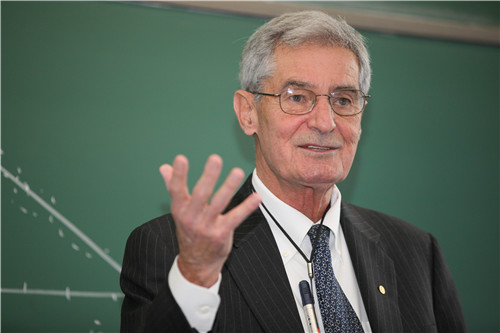
This trend changed after the 2nd world war. According to Angus Maddison's calculations, the US &UK. per capita GDP grew at a continuous rate of 2% whilst the most eye-catching growth came from the miracle economies of Japan and the Asian tiger economies.
Looking at the 21st Century, Prof. Lucas believes OECD living standard improvements will slow and the largest gains will be seen in developing economies. Prof. Lucas predicts that by 2050, China's per capita GDP will. reach current US levels and, considering the large populace, will be an economic miracle. After this period, the gap between China and US per capita income levels will close.
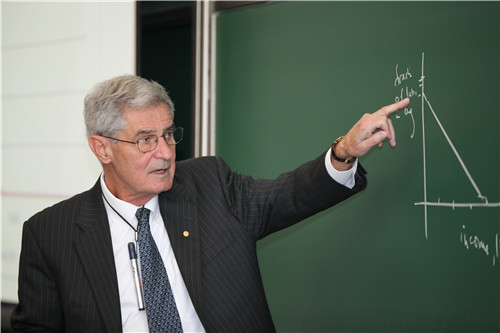
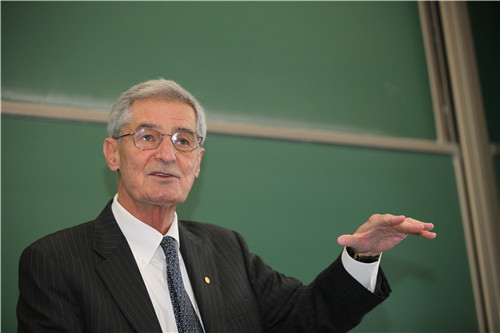
Increases in average income levels arE a great benefit of economic growth but income distribution is not always equal. statistics show that from 1970-2006, South East Asian and OECD countries experienced increases in average income levels but the income distribution curve shifted rightwards, espical in South East Asian countries. Taking China as an example, economic growth caused a sustained increase in income levels, levels unprecedented in history, but the accompanying income distribution has clearly deteriorated, widening the wealth gap. in comparison, when the US and Japan experienced income growth, income distribution gradually improved. Entering the new century, income growth was limited but the wealth gap has been narrowing.
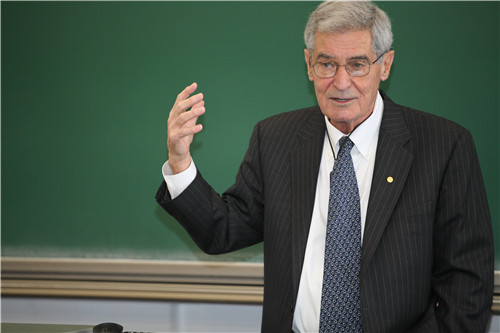

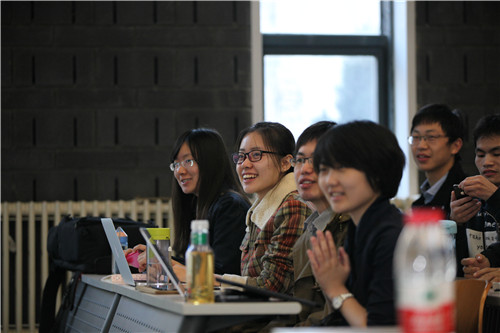
Prof. Lucas emphasized in his conclusion that economic growth is not a zero sum game. Historically, post-war Europe's revival, Japan's economic miracle and the Asian tigers' rapid growth have all had a positive effect one the US. Those who believe ,China's economic growth will be a threat to the US are looking at non-economic factors.
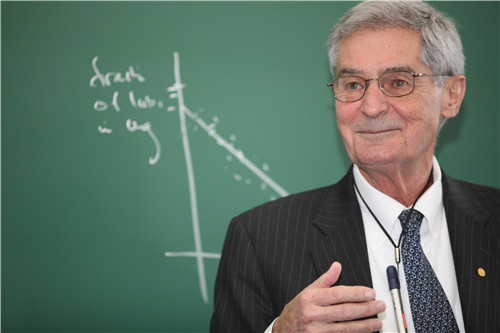
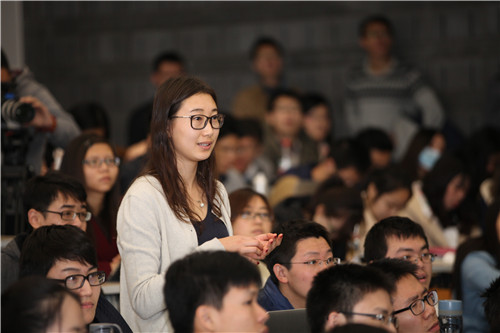
After the lecture, Prof. Lucas interacted with the students. despite his reknown in the academic world, Prof. Lucas' genial and easy-going attitude left a deep impression on the students. the event closed to resounding applause.
